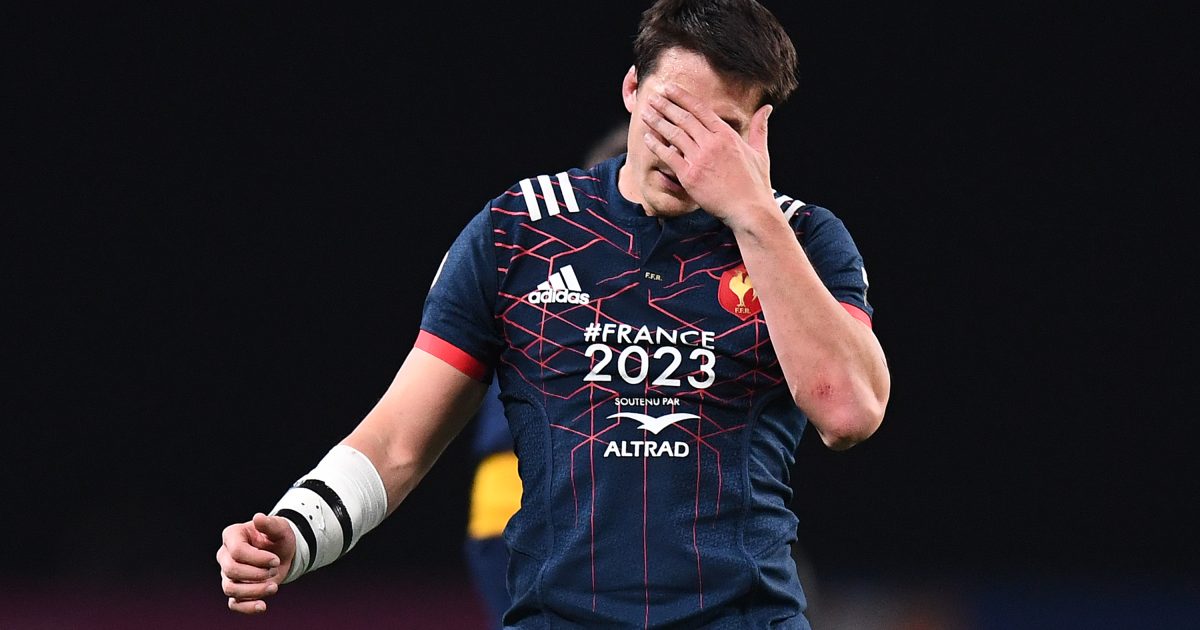Souviens-toi… France - Japon 2017

Il est de ces matchs que l’on retient pour les mauvaises raisons.
L’affiche entre la France et le Japon n’est pas (encore) un classique du rugby international mais ces dernières années, ce match a connu des moments forts, le plus notable d’entre eux remontant certainement à novembre 2017.
Comme en cette année 2024, les Bleus accueillent les Nippons pour la tournée d’automne. C’est à peu près tout pour les similitudes.
En effet, à cette époque, les dynamiques respectives des deux sélections – qui accueilleront les deux prochaines éditions de la Coupe du Monde – n’ont rien à voir.
Nous sommes en 2017. Les Japonais se préparent à accueillir la première Coupe du Monde de Rugby asiatique de l’histoire deux ans plus tard. Deux ans plus tôt, en Angleterre, ils ont réalisé le plus gros coup de leur histoire en s’imposant contre les Springboks lors du Mondial 2015, pendant que la France prenait sa plus grosse « dérouillée » en Coupe du Monde contre les All Blacks.
Depuis cette trempe, la situation du rugby français, embourbé dans une chienlit sans nom, ne s’est guère améliorée. En deux ans, quasiment rien n’a changé et le style français fait d’intensité physique à outrance paraît plus que dépassé face au jeu de mouvement qui a conduit les All Blacks à leur deuxième titre consécutif.
Certes, Philippe Saint-André a cédé sa place à Guy Novès, l’homme qui a fait du Stade Toulousain un modèle de jeu de mouvement en reprenant les principes de Robert Bru. Sous ses ordres, Toulouse est passé du statut de bon club français à mastodonte du rugby mondial. On attend de Novès qu’il insuffle une nouvelle dynamique à la sélection en appliquant les mêmes principes et en faisant éclore de jeunes pousses.
De son côté, le Top 14 fait toujours la part belle aux stars étrangères recrutées à prix d’or et la jeune génération ne commence que timidement à faire son trou.
C’est donc après six défaites de rang que l’équipe de France reçoit un Japon qui, de son côté, est sur la pente ascendante et développe un jeu flamboyant et intense dont les Bleus d’alors rêvent secrètement.
Mais rien n’est plus cruel que la vérité du terrain et malgré la différence de « prestige » entre les deux équipes sur l’affiche, les débats sont bel et bien dominés par des Japonais sans complexe sur la pelouse synthétique de la toute nouvelle U Arena de Nanterre.
Chaque offensive japonaise fait mal à une défense française qui ne sait plus où donner de la tête. Les ballons sortent vite, les joueurs naviguent à leur guise, c’est presque trop facile.
Malgré tout, les Français – avec un jeune Antoine Dupont qui a remplacé Baptiste Serin à la mêlée – parviennent péniblement à mener de 5 points jusqu’à la 72e minute, moment où le Japon égalise et manque même de passer devant sur la transformation manquée. Score final : 23-23.
Silencieux durant toute la rencontre, le public de Nanterre est bien plus expressif au coup de sifflet final et se fend de sifflets et de « remboursés » scandés à l’unisson.
Pour la première fois en vingt ans, la France ne gagne donc aucun match sur sa tournée d’automne. Le bilan est sans appel : 7 succès en 21 matchs pour Guy Novès, qui est licencié pour faute grave par Bernard Laporte, président d’alors – on passera les démêlés judiciaires qui ont suivi cette affaire. Jacques Brunel lui succèdera jusqu’à la Coupe du Monde de Rugby 2019 au Japon.
La rédemption paraît alors lointaine et plus qu’illusoire pour des Bleus qui portent un maillot frappé d’un #France2023. Malgré cela, on retrouve dans le groupe des 23 deux noms qui deviendront les symboles d’un rugby retrouvé quelques années plus tard : Antoine Dupont et Damian Penaud. Les Bleuets champions du monde des moins de 20 ans, viendront leur prêter main forte.
L’avenir est en marche, mais on ne le sait pas encore. Et on a du mal à l’entrevoir…
France – Japon 2017, la compo des Bleus
- Jefferson Poirot
- Guilhem Guirado
- Rabah Slimani
- Romain Taofifenua
- Sébastien Vahaamina
- Judicaël Concoriet
- Sekou Macalou
- Louis Picamoles
- Baptiste Serin
- François Trinh-Duc
- Gabriel Lacroix
- Henry Chavancy
- Damian Penaud
- Teddy Thomas
- Scott Spedding
- Camille Chat
- Sébastien Taofifenua
- Daniel Kotze
- Paul Jedrasiak
- Fabien Sanconnie
- Antoine Dupont
- Mathieu Bastareaud
- Hugo Bonneval
Les remplaçants sont indiqués en italique.




